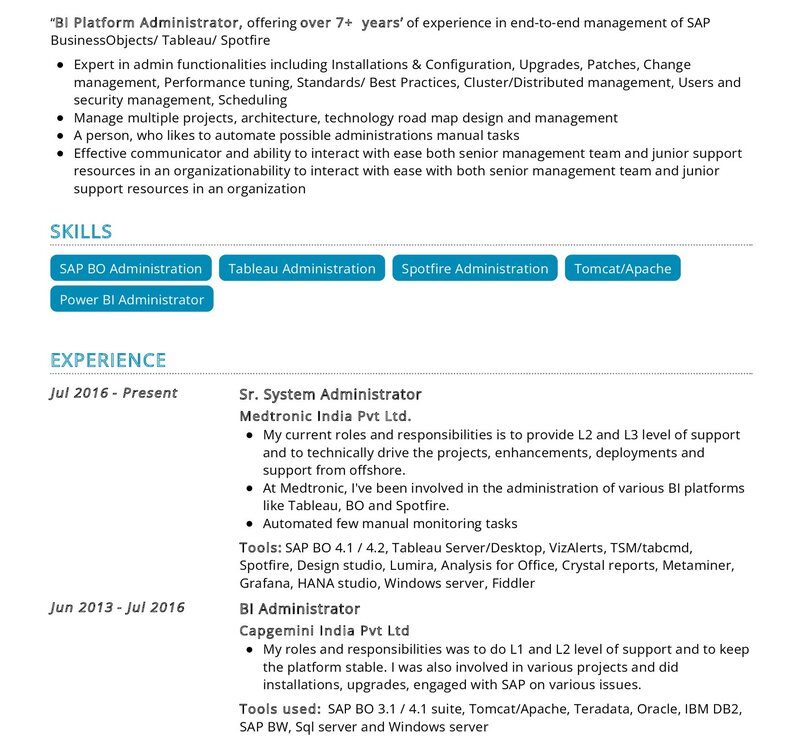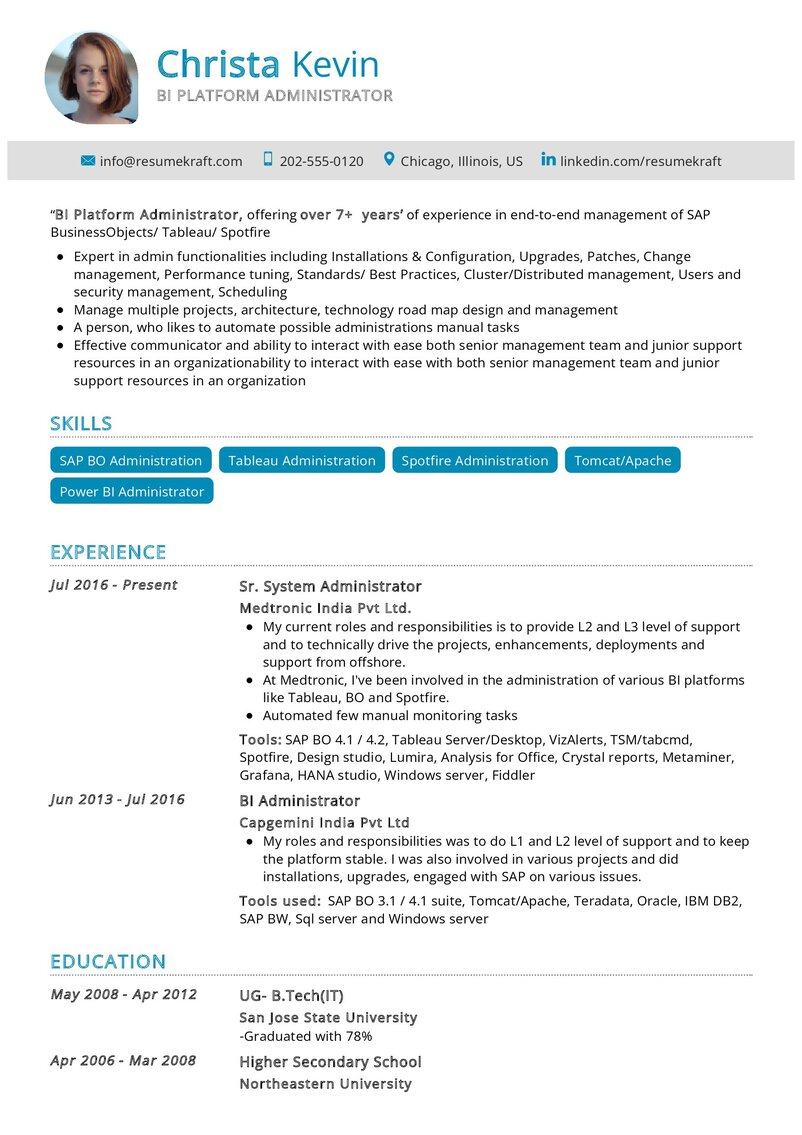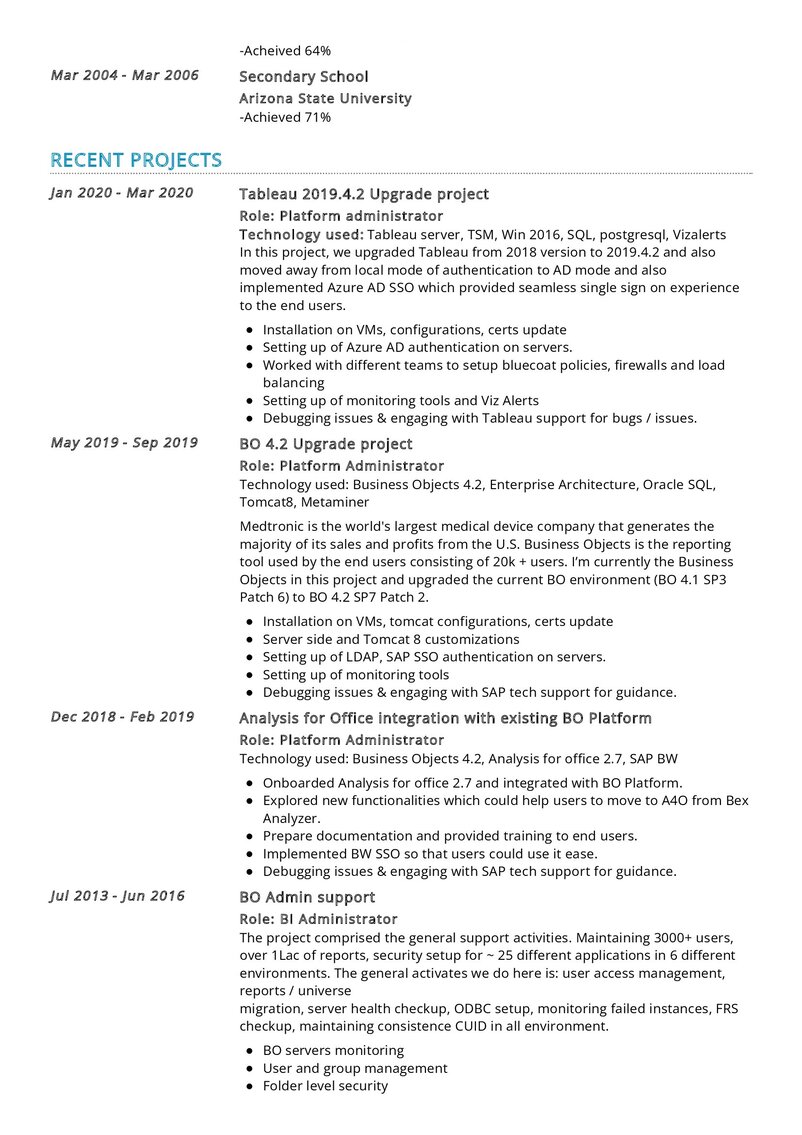What is the Role of a BI Platform Administrator?
In today’s data-driven business landscape, the role of a BI Platform Administrator holds significant importance, serving as the backbone for an organization’s data management and analytics operations. This position blends technical expertise with strategic oversight, ensuring the seamless functioning of the BI platform and empowering businesses to make informed decisions. Let’s delve deeper into the multifaceted role of a BI Platform Administrator, a position that demands a deep understanding of Business Intelligence tools and the ability to manage complex data ecosystems efficiently.
A BI Platform Administrator is responsible for overseeing the deployment and maintenance of Business Intelligence platforms, ensuring that data is managed effectively and insights are delivered to the right stakeholders at the right time. They play a pivotal role in collaborating with cross-functional teams to understand business requirements and translate them into actionable insights, thus fostering a data-driven culture within the organization. Their role is crucial in implementing best practices for data governance and security, ensuring that data remains accurate, reliable, and secure.
What are the BI Platform Administrator Job Requirements?
To embark on the journey of becoming a BI Platform Administrator, one needs to meet a set of rigorous requirements, which reflect the demands of managing complex data ecosystems. Let’s explore the prerequisites essential for embracing the role of a BI Platform Administrator:
- A Bachelor’s or Master’s degree in Computer Science, Information Technology, or a related field, showcasing a strong foundation in data management and analytics.
- Profound knowledge of Business Intelligence tools such as Tableau, Power BI, or Qlik, including the ability to design, implement, and manage these platforms effectively.
- Experience in database management and administration, reflecting a journey of handling complex data ecosystems and ensuring data integrity and security.
- Leadership and teamwork skills, developed through experiences in managing cross-functional teams and fostering a collaborative work environment.
- Proficiency in SQL scripting and data modeling, skills vital in handling and extracting insights from large datasets.
- An analytical mindset and problem-solving skills, enabling effective interpretation of complex data sets and the formulation of actionable insights.
Obtaining relevant certifications in Business Intelligence platforms can enhance your profile and make you a competitive candidate in the job market.
What are the Responsibilities of a BI Platform Administrator?
The role of a BI Platform Administrator is a mosaic of diverse responsibilities, blending technical proficiency with strategic oversight and proactive data management. Let’s uncover the core responsibilities that define this role, each contributing to the effective management and utilization of business data:
- Overseeing the installation and configuration of Business Intelligence platforms, ensuring smooth operations and accessibility for end-users.
- Managing and optimizing database performance, ensuring efficient data retrieval and processing for analytical purposes.
- Collaborating with stakeholders to understand business requirements and translating them into data models and visualizations that drive informed decision-making.
- Implementing data security measures and best practices, ensuring data integrity and compliance with regulatory standards.
- Providing training and support to end-users, empowering them to leverage the BI platform effectively for data-driven decision-making.
- Monitoring and troubleshooting system issues, ensuring minimal downtime and maximizing the availability of data for analysis.
- Staying updated with the latest developments in the field of Business Intelligence, integrating innovative solutions and tools to enhance data management and analysis.
Each responsibility contributes to the seamless functioning of the BI platform, driving data-driven decision-making and fostering a culture of continuous improvement.
BI Platform Administrator CV Writing Tips
As you construct your CV for the BI Platform Administrator role, remember that it serves as a comprehensive reflection of your skills, experiences, and accomplishments. Here are some tips to craft a compelling CV that highlights your expertise and suitability for the role:
- Emphasize your experience in managing complex data ecosystems, showcasing instances where you streamlined data management processes and facilitated efficient data utilization.
- Detail your proficiency in various Business Intelligence tools, outlining specific projects where you utilized these tools to deliver valuable insights to the organization.
- Include metrics and measurable achievements, highlighting the impact of your work on improving data management and decision-making processes within the organization.
- List relevant certifications and training programs you have completed, demonstrating your commitment to continuous learning and professional development in the field of Business Intelligence.
- Customize your CV for the specific job description, aligning your skills and experiences with the key requirements of the role.
Each tip is a step towards constructing a compelling CV that effectively communicates your proficiency and expertise as a BI Platform Administrator.
BI Platform Administrator CV Summary Examples
Your CV summary serves as the introductory paragraph, encapsulating your professional journey and showcasing the value you bring to the role of a BI Platform Administrator. Here are some examples to inspire your CV summary:
- “Experienced BI Platform Administrator with a proven track record in optimizing data management processes and implementing effective Business Intelligence solutions for informed decision-making.”
- “Dedicated and detail-oriented BI Platform Administrator with expertise in database management and administration, adept at translating complex data sets into actionable insights for organizational growth.”
- “Seasoned BI Platform Administrator with a strong background in implementing data security measures and ensuring compliance with regulatory standards, contributing to a secure and efficient data management ecosystem.”
Each CV summary provides a glimpse of your professional journey and highlights the unique value you bring as a BI Platform Administrator.
Create a Strong Experience Section for Your BI Platform Administrator CV
Your experience section is the focal point of your CV, narrating your professional journey and highlighting your contributions to the organizations you have served. Here are some examples to guide you in constructing a compelling experience section:
- “Managed the deployment of Tableau Business Intelligence platform, facilitating data-driven decision-making and improving operational efficiency by 25% within the first year of implementation.”
- “Optimized database performance through efficient data modeling and SQL scripting, resulting in a 30% reduction in data retrieval time and enhancing the overall data analysis process.”
- “Collaborated with cross-functional teams to develop customized data visualizations, enabling stakeholders to gain valuable insights and make informed decisions that led to a 15% increase in revenue generation.”
Each experience highlights your key contributions, demonstrating your ability to leverage Business Intelligence tools effectively for organizational growth and development.
Sample Education Section for Your BI Platform Administrator CV
Your educational background serves as the foundation of your expertise in the field of Business Intelligence. Here’s how you can list your educational achievements:
- Master of Science in Data Management and Analytics, XYZ University, a journey of in-depth learning and specialization in data management, 2018.
- Bachelor of Science in Computer Science, ABC University, the cornerstone of your IT career and foundational knowledge in data analytics, 2012.
- Certification in Tableau Desktop Specialist, showcasing your proficiency in utilizing Tableau for data visualization and analysis, 2019.
Each educational qualification represents a significant milestone in your career, highlighting your commitment to continuous learning and professional development in the field of Business Intelligence.
BI Platform Administrator Skills for Your CV
Your skill set serves as a testament to your expertise and proficiency in managing complex data ecosystems and leveraging Business Intelligence tools effectively. Let’s list down the essential skills that a BI Platform Administrator should possess:
Soft Skills:
- Leadership and teamwork, the ability to collaborate with cross-functional teams and drive collective success.
- Communication and interpersonal skills, the art of conveying complex data insights effectively to various stakeholders.
- Analytical thinking, the ability to interpret complex data sets and derive actionable insights for business growth.
- Attention to detail, the meticulous approach to ensuring data accuracy and reliability for informed decision-making.
- Problem-solving abilities, the knack of identifying and resolving data management challenges effectively.
Technical Skills:
- Proficiency in SQL scripting and database management, vital skills in handling and optimizing large data sets for analysis.
- Expertise in Business Intelligence tools such as Tableau, Power BI, or Qlik, enabling effective data visualization and analysis for decision-making purposes.
- Knowledge of data security and governance, ensuring data integrity and compliance with regulatory standards.
- Understanding of ETL (Extract, Transform, Load) processes, facilitating the seamless integration of data from various sources into the BI platform.
- Project management skills, enabling the successful implementation and management of BI initiatives within the organization.
Each skill represents a valuable asset in your role as a BI Platform Administrator, contributing to the effective management and utilization of data for organizational growth and development.
Most Common Mistakes to Avoid When Writing a BI Platform Administrator CV
As you craft your CV, it is essential to avoid common pitfalls that can hinder your chances of securing the desired role. Here we list down the mistakes often seen in CVs and how to avoid them:
- Avoid using generic language and clichés, instead, focus on highlighting your unique experiences and achievements in the field of Business Intelligence.
- Ensure your CV highlights your specific contributions and achievements, showcasing the impact of your work on data management and decision-making processes within the organization.
- Include a well-crafted cover letter, emphasizing your passion for data management and your enthusiasm for the role of a BI Platform Administrator.
- Avoid using excessive technical jargon in your CV, aiming to present your expertise in a clear and concise manner that is easily understandable for non-technical stakeholders.
- Thoroughly proofread your CV to eliminate any grammatical errors or inconsistencies, ensuring a polished and professional representation of your skills and experiences.
Each mistake has the potential to undermine the effectiveness of your CV, so it is crucial to avoid them and present a well-crafted and compelling representation of your expertise as a BI Platform Administrator.
Key Insights for Your BI Platform Administrator CV
As we conclude this comprehensive guide, it is essential to reflect on the key insights that will help you craft a compelling CV for the role of a BI Platform Administrator:
- Highlight your role in driving data-driven decision-making, showcasing your ability to leverage Business Intelligence tools effectively for organizational growth.
- Demonstrate your expertise in data management and analysis, emphasizing your proficiency in handling complex data ecosystems and delivering valuable insights to stakeholders.
- Detail your contributions to data security and governance, highlighting your commitment to ensuring data integrity and compliance with regulatory standards.
- Include a section on professional development, showcasing the certifications and training programs you have completed to stay updated with the latest advancements in the field of Business Intelligence.
Finally, feel free to utilize resources like AI CV Builder, CV Design, CV Samples, CV Examples, CV Skills, CV Help, CV Synonyms, and Job Responsibilities to create a standout application and prepare for the BI Platform Administrator job interview.



